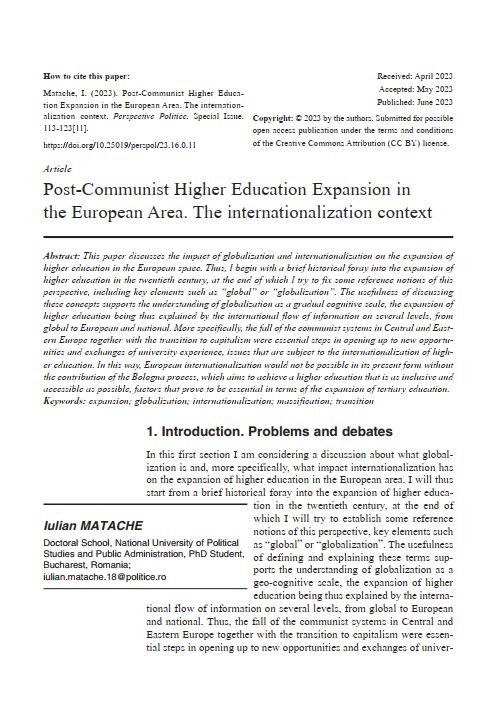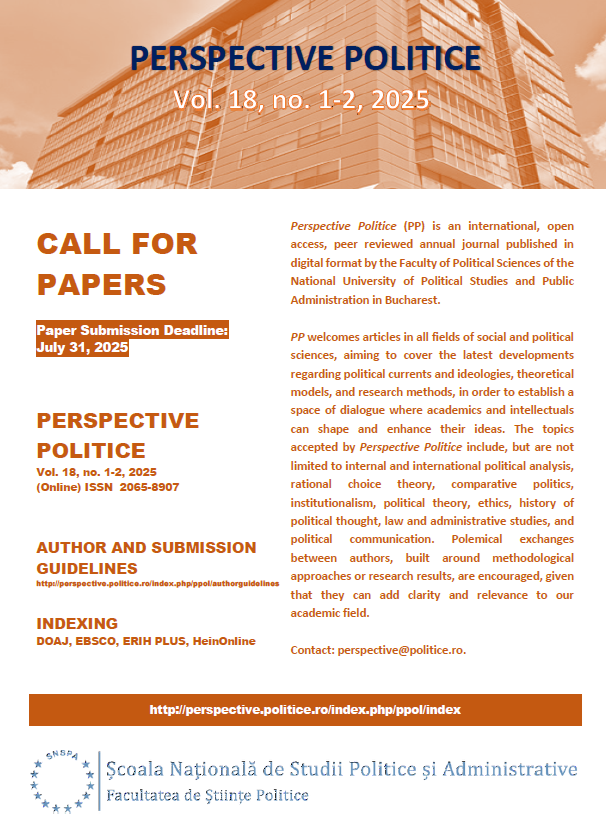Post-Communist Higher Education Expansion in the European Area. The internationalization context
Abstract
This paper discusses the impact of globalization and internationalization on the expansion of higher education in the European space. Thus, I begin with a brief historical foray into the expansion of higher education in the twentieth century, at the end of which I try to fix some reference notions of this perspective, including key elements such as “global” or “globalization”. The usefulness of discussing these concepts supports the understanding of globalization as a gradual cognitive scale, the expansion of higher education being thus explained by the international flow of information on several levels, from global to European and national. More specifically, the fall of the communist systems in Central and Eastern Europe together with the transition to capitalism were essential steps in opening up to new opportunities and exchanges of university experience, issues that are subject to the internationalization of higher education. In this way, European internationalization would not be possible in its present form without the contribution of the Bologna process, which aims to achieve a higher education that is as inclusive and accessible as possible, factors that prove to be essential in terms of the expansion of tertiary education.

Downloads
Published
Issue
Section
License
Copyright (c) 2023 Iulian MATACHE

This work is licensed under a Creative Commons Attribution-NonCommercial-ShareAlike 4.0 International License.



